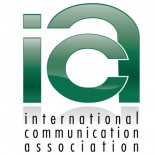President’s Message: On the Virtues of Procrastination
| Francois Heinderyckx, ICA President, U libre de Bruxelles (ULB) |
|
I don’t remember the last time I met anyone, colleague, student, staff member alike, who was anything but overwhelmed with work, late, struggling with deadlines, wondering how to make it. There are recurring patterns associated with these variations of feeling you have more tasks to complete than work time allows. The first defense mechanism is to resign to doing work after hours. Longer office hours, then bringing work home at night, then taking on weekends, which quickly become the overflow slot to try to catch up with overdue assignments of all kinds. The weekend-as-an-overflow strategy is widespread. It is a lifesaver throughout the week, as one can appease one’s anxiety about not being able to cope by fantasizing that “it’s all right, I’ll do it over the weekend.” Notwithstanding the consequences for one’s family and social life of spending what is socially expected to be “free time” doing work, this strategy often proves delusory: when the weekend ends, the “to-do list” is still obscene. Managing our tasks and responsibilities, tending our to-do lists and completing our duties always comes down to ranking priorities and deciding what to do first, and for how long, in order to achieve a sense of being afloat, and of matching the expectations of our employer, our colleagues and all those who rely on us for any number of tasks and responsibilities. The order in which we decide to tackle these tasks follows its own logic. Some people discipline themselves to do the smaller tasks on the go, as they come in (a particular strategy consists of doing immediately any task that can be done in under 2 minutes). Others function by layers, focusing on the upper layers or the in-tray or the desktop, I.e. the tasks that manifested themselves most recently. Reminders are usually a sure way to bring one particular set of tasks back to the surface, to the upper layers of our attention. This is often more than a metaphor: layers of papers on one’s desktop (actual and on the computer) are showing only what’s on the very surface. We often let ourselves drift in a delusory state not unlike that of young infants for whom anything that slips out of our sight ceases to exist. There is an inherently perverse mechanism at play when we prioritize our tasks: smaller tasks and short-term deadlines always prevail over longer term, ampler tasks, even though the latter are generally more intellectually intensive and rewarding, more gratifying and more important to our careers, professional achievements and self-esteem. As a result, small things due in the next few days or hours will always cut in the queue: reports, lectures, marking, reviewing, forms and various paperwork. That article, book or research project that we deem so much more important, will have to wait. And so not only are we under pressure, feeling we are not keeping up with our responsibilities, we are at the same time feeling a growing frustration that we are forced to neglect the core tasks, the ones that we thought were the heart of our vocation, of our social raison-d’être. These important and gratifying tasks are mechanically pushed back, over and over again, until the proximity of their own deadline makes them a clear-and-present priority, but with so little time left that trying to complete it as best as possible will only create further frustration by forcing a botched-up job produced in afflictive bursts of sweat and tears. Adrenaline probably enhances creativity, but science and ideas need time to materialize, and last-minute panic-driven creativity doesn’t bode well for quality. Postponing one or several difficult tasks to “later” was given a scholarly name, “procrastination,” like lively children became stricken by “Attention Deficit Hyperactivity Disorder,” except that the pharmaceutical industry has not (yet) come up with a drug to help us cope with our crammed to-do lists and impossible deadlines. The notion of procrastination is associated with a counterproductive, dysfunctional approach to work, an inability to focus on the right tasks and a compulsion to do first what’s easy and push back everything else. Procrastination is socially reproved and is to be avoided, cured, overcome. Yet, one can find virtues to procrastination. To begin with, procrastinating is often rewarded by a last-minute revelation that one particular task wasn’t that important after all, sometimes even unnecessary, or different from what was originally asked. In other words, by waiting until the last minute, we give ourselves a chance to be exempted. More importantly, because we are swamped with intellectually poor, and always urgent tasks (administrations boast about their lack of flexibility), a procrastination-free approach to work would likely postpone intellectual work indefinitely. Procrastination, and in some cases, open rebellion against red tape and the audit culture that crept on our institutions, is often the only viable strategy to preserve the essence of our job, to do what we were trained and hired to do and what society expects and needs from us. Strategic procrastination then becomes an asset to achieve our goals as scholars. Not only is procrastination acceptable, not only is it often functional, it is a fundamental right we should claim to preserve our standing, our nature and our intellectual productivity. No short-term chore should deprive us of significant time to read, contemplate, debate, think, articulate, write and share. We owe it not just to our colleagues, our students, our employer and the world we live in. We owe it to ourselves. |

